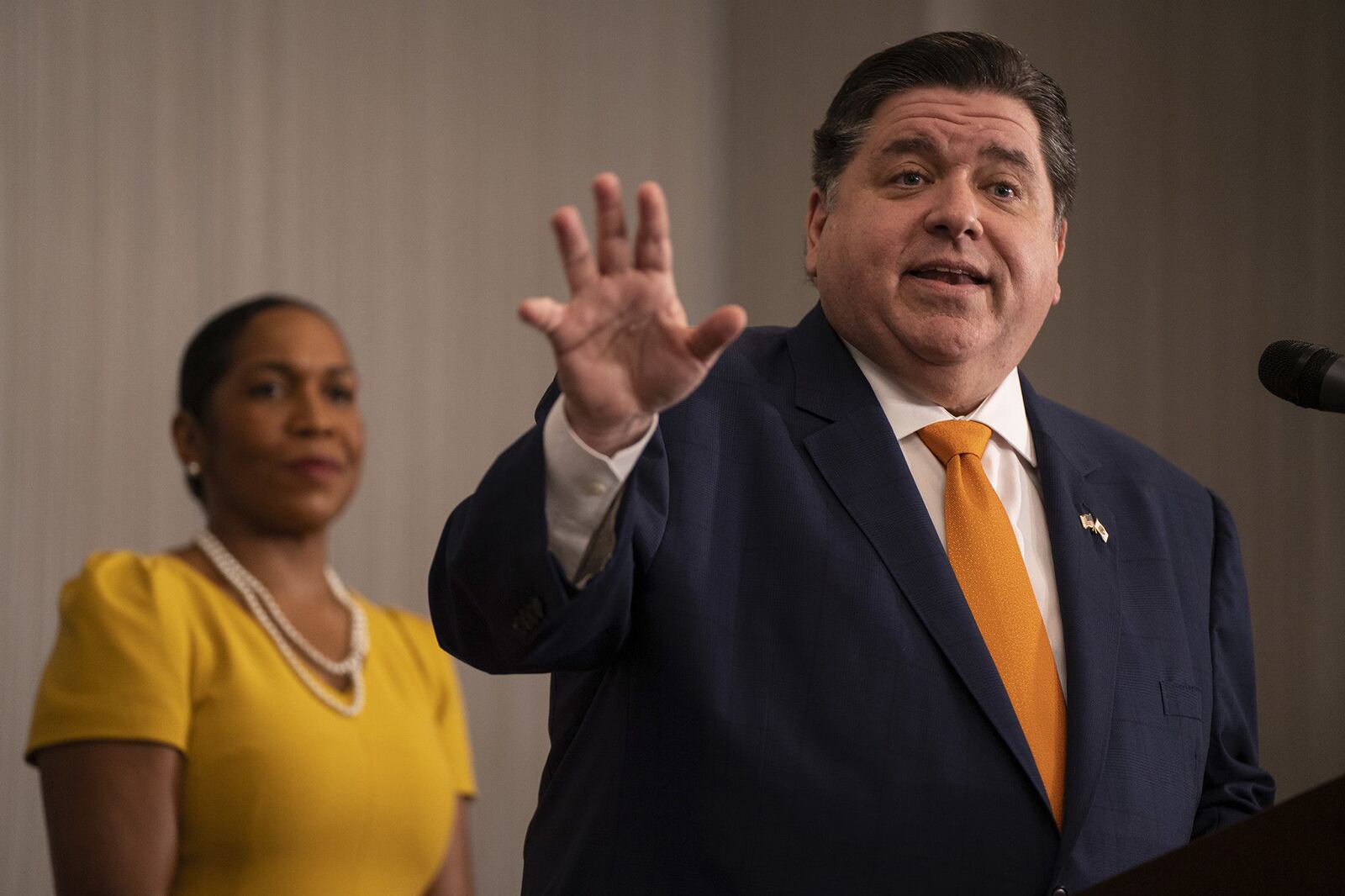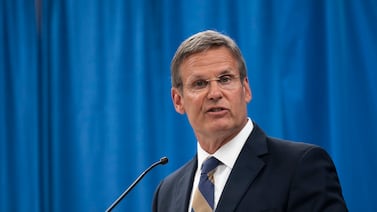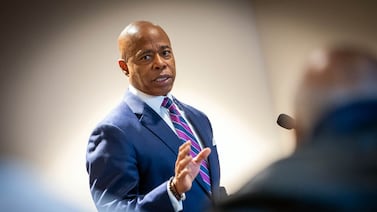This story has been updated with reactions to Pritzker’s speech.
Gov. J.B. Pritzker on Wednesday revealed his 2024 budget proposal — laying out a vision for a second term in office that includes ambitious funding plans for early childhood education and higher education.
Pritzker wants to increase the state’s funding for pre-K-12 education by 6.2% next year. His overall 2024 proposal would boost the state’s operating budget to $49.6 billion, an 11% increase over last year.
Throughout his first term in office, Pritzker said, he worked to balance the state’s budget and increase the state revenue — even when COVID-19 shook the state’s economy. With the state in a better financial position, Pritzker is recommending an increase in funding for early childhood education and child care programs.
His proposal still needs the approval of state lawmakers.
“I ask you to partner with me once again,” Pritzker said to the general assembly Wednesday in his annual State of the State address. “This time on the long-term investment that has the greatest return for taxpayers with the most positive social and economic impact that I have ever come to you with.”
Pritzker was referring to his four-year plan called Smart Start Illinois for early childhood education and child care that will create 20,000 seats for young learners. In the first year, the governor plans to increase funding to the state’s child care programs by $250 million and create 5,000 seats in preschool classrooms for 3- and 4-year-olds.
For K-12 education, the State Board of Education’s general funding would increase by $571.5 million, a 6.2% increase, for a total budget of $10.3 billion. That includes a $75 million increase to the Early Childhood Block Grant and a $350 million increase to state’s funding for K-12 schools — keeping in line with the state’s bipartisan promise in 2017 to add at least $350 million a year to the evidence-based formula.
The State Board of Education would also receive an additional $86.4 million for special education and transportation grants, and money for two new initiatives that will support computer science and ease the teacher workforce shortage. The latter would fund the first year of a three-year pilot program that would give $70 million per year to school districts that have a large number of teacher vacancies.
To help more students from low-income families access higher education, Pritzker wants to add $100 million to the Monetary Award Program, increasing the program’s overall budget to $701 million.
Funding for the Minority Teachers of Illinois Scholarship would go from $4.2 million to $7 million for the program that aims to bring more teachers of color — especially men of color and those in bilingual education — into the educator pipeline.
Pritzker’s plan falls in line with the recommendation the State Board of Education made in January during its monthly meeting. Former State Superintendent Carmen Ayala requested $516 million, with $350 million for K-12 schools and a $60 million increase to early childhood education. The rest of the funding would go to transportation, special education, and free school meals.
However, education advocates are pushing the state to add at least $550 million to the evidence-based funding formula to support K-12 schools and get the state back on track to fully funding schools by 2027.
Advocates also wanted an increase of 20% across all early childhood education programs through the State Board of Education and the state’s Department of Human Services to make early education affordable for low-income families and increase pay for early childhood educators, who are often women of color and work multiple jobs to make ends meet.
The general assembly will debate the 2024 budget before voting on it at the end of the spring legislative session in May.
The Illinois Federation of Teachers, one of the largest teachers unions in the state, said it shares Pritzker’s concerns about staffing shortages from preschool to higher education and will work with the governor to implement his $70 million pilot program.
“The teacher and school staff shortage is having a dramatic impact on states across the nation and Illinois is no exception,” said Dan Montgomery, president of IFT, which also supported Pritzker’s proposal to increase higher education funding.
Start Early, a nonprofit organization that focuses on early childhood education throughout Illinois, commended Pritzker’s Smart Start Illinois Initiative.
“This is a banner day for early childhood in Illinois, and Start Early looks forward to working with the Illinois General Assembly to enact a budget that does right by infants and toddlers across the state,” said Ireta Gasner, Start Early vice president of Illinois policy.
PEER Illinois, a statewide advocacy group, applauded Pritzker’s proposal to expand child care and urged the state to put more than $350 million toward the evidence-based funding formula.
“To do less diminishes one of the state’s most highly regarded tools for advancing equity while reducing Illinois’ stated commitment to equity in funding K-12 education to rhetoric,” PEER Illinois said in a statement. “At its current rate of EBF funding, nearly two more generations of Illinois children will receive an inadequately funded education.”
Samantha Smylie is the state education reporter for Chalkbeat Chicago, covering school districts across the state, legislation, special education, and the state board of education. Contact Samantha at ssmylie@chalkbeat.org.








